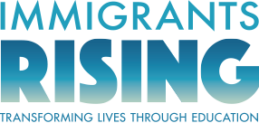5 Tips for Educators to Help Students Get Started as Independent Contractors/Freelancers
Themes/Topics: Entrepreneurship & Freelancing
Geography: California, National
Audience: Educator
1. Get to know the basics about income generation, regardless of immigration status.
- Know that income generation through independent contracting and freelancing is not a workaround for employment (read Basic Facts About Entrepreneurship).
- Become familiar with Immigrants Rising’s entrepreneurship resources.
- Sign up for Immigrants Rising’s Entrepreneurship Listserv to get the latest updates about Immigrants Rising’s entrepreneurship programming.
- It’s okay to not have all the answers. Get comfortable referring your students to the places they can get them.
2. Understand contracting/freelancing considerations.
- Make sure students clearly understand the differences between employment and independent contracting/freelancing (refer them to read our guides).
- Make sure the type of work students wish to do follows federal and state independent contractor guidelines (refer them to read our guides).
- Encourage students to research the type of work they wish to do, so they know the standard rate for their services and the education/licensing/certification that’s needed to get started (i.e. use upwork.com as an exploratory tool).
3. Help students develop an entrepreneurial mindset.
- Encourage students to complete the Independent Contracting Brainstorming Worksheet to think about what it is that they enjoy doing and/or have a natural talent for that can be turned into an opportunity to generate income.
- Have students research the type of work entrepreneurs/freelancers/consultants do in specific field of study or line of work (have them do a Google search) and what is needed to get started.
- Have students interview entrepreneurs/freelancers (such as friends, family or faculty) in their field of study or desired line of work to learn about the type of work they could do and how to get started.
- Have students register for the FREE Spark Entrepreneurship Training. Encourage group learning to encourage accountability and completion of training.
- Encourage students to get certifications (i.e. Google Analytics Certificate) or additional training in specific lines of work (see list of Professional Licenses available to anyone, regardless of status in CA through SB 1159).
4. Identify institutional support.
- Identify existing entrepreneurship training programs (incubators or accelerators) that undocumented students can participate in.
- Identify local transactional law clinics (available through law schools) that can offer pro bono business-related legal support; see list of UC Transactional Clinics (open to the public).
- Collaborate with business schools to host tax and business development workshops.
- Develop partnerships with the business school to create entrepreneurship certificate programs (i.e. LA Trade Tech Entrepreneurship Certificate Program).
5. Develop partnerships with community-based organizations (CBO).
- Identify local service providers that offer business training (i.e. Small Business Development Agencies, Workforce Development Programs)—venturize.org is a good tool to find local service providers.
- Identify local financial institutions that are immigrant-friendly and accept the ITIN to open bank accounts and establish credit.
- Identify local organizations that provide tax services; use IRS’ VITA clinic locator to find a local tax clinic near you.
- Collaborate with local agencies to host tax and business development workshops.
Learn more about income generation through entrepreneurship and freelancing at immigrantsrising.org/ resources.
Immigrants Rising helps you make decisions based on your potential, not your perceived limits. Visit our website so you can see what’s possible: immigrantsrising.org. Updated 8/2023.
Related Resource:
Back to Resources